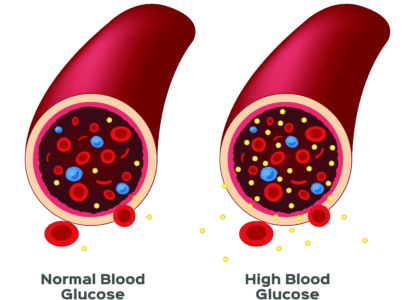Breaking Down My MTHFR Test Results
Article at a Glance
- An estimated 40% of the population carry MTHFR variants that reduce enzyme function and may lead to folate deficiency.
- In most cases, these “mutations” do not cause symptoms, but can be a clue that folate levels should be monitored more closely.
- To get the full picture of how the MTHFR genes impact methylation, test MTHFR in the context of a well designed polygenic risk score which looks at multiple genes.
- In a recent blood draw, I saw elevated homocysteine despite normal MTHFR function. Digging deeper into my methylation scoring gave clues about the genes that could be causing the issue other than MTHFR.
Genes Mentioned

Since 2018, Gene Food has done thousands of genetic methylation tests for customers, so it goes without saying that we believe there is value in knowing your MTHFR status.
We have also been quite adamant that the implication of MTHFR SNPs, standing alone, are often oversold, and the most value is found with a “polygenic” approach where other genes that play a role in the methylation pathway are evaluated alongside MTHFR. This approach offers a full picture of whether you have a genetic predisposition for folate and B12 deficiency, and therefore a propensity for elevated homocysteine. The implications of these deficiencies can be far reaching, so knowing your genetic status can help craft a personalized approach to nutrition and lifestyle.
For a technical rundown of how the MTHFR gene influences methylation, see this blog post.
However, there is a tremendous amount of confusion, and anxiety, on these topics in the general public, which is why I decided to write this blog post. Some Reddit threads I have encountered are discouraging. People think discovering they carry one copy of MTHFR C677T explains their whole life. In reality, these markers are carried by 40% of the population and most are asymptomatic.
My recent blood test
I recently had some blood work done to test out Function Health and was overall pleased with the results, especially because I ate a huge amount of vanilla ice cream with my 3 year old a couple of days prior to the draw. My daughter is always on the hunt for “pink ice cream” when we eat out, but happily settles for old fashioned vanilla when her first choice isn’t available.
Other than that splurge, I have been focused on reigning in my diet and getting back to the basics of my Wayoan roots (supplemented with some lean animal protein).
My ApoB was 87 mg/DL and LDL-C came in at 97 mg/DL. You could argue both numbers should be a bit lower, but overall, it was a reasonable result that was achieved while still eating a handful of cheat meals.

However, I did have one marker out of range – homocysteine at 11.7 umol/L. While not wildly high, that number is definitely higher than I would like to see.

Elevated homocysteine is often pinned on methylation issues due to MTHFR “mutations,” but I know from our Gene Food panel, that my MTHFR score is normal, with only one SNP for MTHFR A1298C. I carry no copies of MTHFR C677T, I am C/C.

Get Started With Personalized Nutrition
Gene Food uses a proprietary algorithm to divide people into one of twenty diet types based on genetics. We score for cholesterol and sterol hyperabsorption, MTHFR status, histamine clearance, carbohydrate tolerance, and more. Where do you fit?
Methylation is more than just MTHFR
So, what gives?
Well, a deeper dive into my methylation pathways reveals a potential answer. While my overall MTHFR enzyme function is strong, my methylation score flags as “elevated risk” based on the 15 SNPs we look at in the Gene Food Methylation Panel.

Notably, I am homozygous for rs1801394 (MTRR) and rs2275565 (MTR), two SNPs that play a role in the methylation cycle and may impair B12 recycling and homocysteine metabolism when altered.
Seeing my homocysteine out of range was a reminder that I need to prioritize getting adequate B12 in the form of methylcobalimin. The trick is not to overdo it as methylated B vitamins can cause severe side effects and should always be taken under the care of a physician.
The takeaway here is that having a basic understanding of your methylation pathways can be valuable, but the risk is polygenic — meaning it goes beyond any one gene. I have normal MTHFR function. However, other genes that influence methylation could be an issue.
Relying on an MTHFR test in isolation wouldn’t mean much, and could cause more worry than it’s worth. This is a mistake I see over and over on Reddit forums.
Looking at the full picture with a polygenic methylation test gives you a much clearer view of what’s actually going on and adds helpful context when reviewing blood work.
What MTHFR tests reveal
- Large scale studies show that the MTHFR C677T variant, which is common, is the number one genetic driver of red blood cell folate, which reflects long term folate levels. (R) (R) (R)
- Carriers of the T allele (or the A allele on the reverse strand), both heterozygous (one copy), and homozygous (two copies), see reduced MTHFR enzyme function that can result in folate deficiency over time.
- An MTHFR “mutation” does not mean total loss of function, and is no reason to panic, but it does result in a diminished ability to utilize folate. Especially those who are homozygous should be vigilant about getting adequate folate and may want to discuss a methylfolate supplement with their doctor.
- MTHFR testing is important because it helps clue us in that we may be prone to health issues due to folate deficiency, but it doesn’t explain our entire health profile as many marketers suggest.
- Longevity thought leaders, like Dr. Peter Attia, know their MTHFR status, and have been public about how it influences their supplement regimens. However, they take the results in stride as one data point, not a comprehensive identity.



